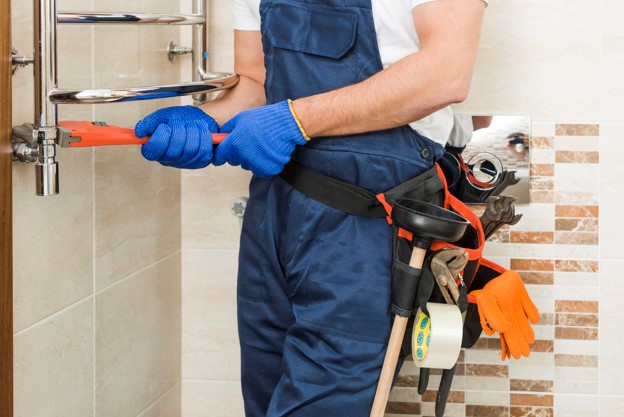In the cold season, it is essential to be mindful of the risk of frozen pipes, mainly if they are in unconditioned or uninsulated areas like basements and crawl spaces. Frozen pipes can be highly problematic and costly to replace, as they are often beyond repair.
If you want to prevent such issues, insulating your water pipes is a highly recommended solution.
While many people recognize the importance of pipe insulation, a few may have doubts about its effectiveness. If you are still deciding whether to insulate your pipes, the reasons below should clearly show to you that this investment is truly worth looking into.

Which Pipes Should You Insulate?
When considering the insulation of your water pipes, it’s essential to focus on two key factors. Firstly, you need to determine the number of pipes that you can effectively insulate. Secondly, you have to consider the appropriate materials to use for the insulation project. The answers to these two questions, along with a few others, will depend on the unique characteristics of your home plumbing.
In general, exposed pipes are the most susceptible to heat loss and freezing, making them the top priority for insulation. If these pipes are in hard-to-reach areas, it’s advisable to involve the expertise of professional plumbers who are equipped with the necessary tools to ensure prompt and proper pipe insulation.
Advantages of Insulating Your Pipes
Insulating your home’s water pipes offers a range of benefits that can’t be easily recognized, but will become clear in the long run. For those who may still be unaware of the advantages, here are several reasons pipe insulation is worth considering:
- Pipe Protection
Insulating pipes provide optimal protection against freezing. It’s important to note, however, that it’s the water inside the pipes, not the pipes themselves, which freezes. When this happens, the water expands and exerts pressure on the pipe, leading to breakage or leaks, said a plumber in Denver.
- Temperature Control
Proper insulation of pipes is essential for maintaining consistent temperatures, regardless of whether you’re dealing with hot or cold water. Effective insulation allows your water heater to function efficiently even with low water temperatures. This minimizes the impact of external temperature drops and potentially reduces your water bill charges.
- Noise Reduction
Insulating pipes can significantly reduce vibrations and loud noises caused by strong water flow. By minimizing these disturbances, pipe insulation contributes to a quieter and more peaceful plumbing environment.
- Condensation Control
Insulation helps prevent condensation, which occurs when moisture accumulates and forms droplets on the pipes. The absence of condensation reduces the risk of accidents, such as slips or issues like mold growth, promoting a safer and healthier home space.
- Efficient Heat Utilization
During winter, uninsulated pipes can absorb heat from surrounding sources, such as the garage. By insulating your water pipes, you can prevent the unnecessary transfer of heat, ensuring that it stays where it needs to be.
- Repair Savings
Insulated pipes are less likely to freeze during cold seasons, reducing the need for costly replacements. They can also enhance comfort during winter by maintaining a consistent and reliable hot water supply, with minimal disruptions. Additionally, pipe repairs are typically minor in the rare event of any damage, resulting in less costs.
- Water Conservation
Pipe insulation slows down the cooling process of hot water and can increase the overall temperature of the household water supply by a few degrees. It allows for water conservation since less energy is required to heat the water to the desired temperature. In other words, insulated pipes contribute to energy efficiency by facilitating heating and promoting water conservation.
When to Insulate Your Pipes
It is best to insulate water pipes before the arrival of the winter season to ensure optimal protection against freezing. Specifically, you should focus on insulating the plumbing pipes that pass through unheated areas of your home. These include the basement, mechanical rooms, exterior walls, and floor cavities.
In some instances, additional measures like heat tracing may be necessary to provide extra freeze protection. Either way, when you proactively insulate your pipes, you can effectively safeguard them from potential freezing problems during winter and minimize the risk of damage.
Conclusion
Insulating your water pipes is a pretty straightforward process, contrary to common belief. You can take on the project yourself if you feel confident in your plumbing skills. Begin by obtaining sleeves that you can cut to the desired length, then secure them using adhesive tapes.
However, certain sections of your water pipes may require more work, making DIY insulation impractical. In such cases, it is advisable to enlist the services of a licensed plumber. Doing so ensures that the insulation work will get carried out professionally and will meet your unique requirements. Hiring a certified plumber can also provide you with peace of mind and ensures effective insulation of your water pipes.
